The Pinal County Planning and Zoning Commission held a work session on July 17 to discuss a comprehensive plan amendment for the Silver Reef Energy Solar and Storage Project. The staff presentation covered a proposal to re-designate 801 acres from Very Low Density Residential to Green Energy Production for a utility-scale solar facility.
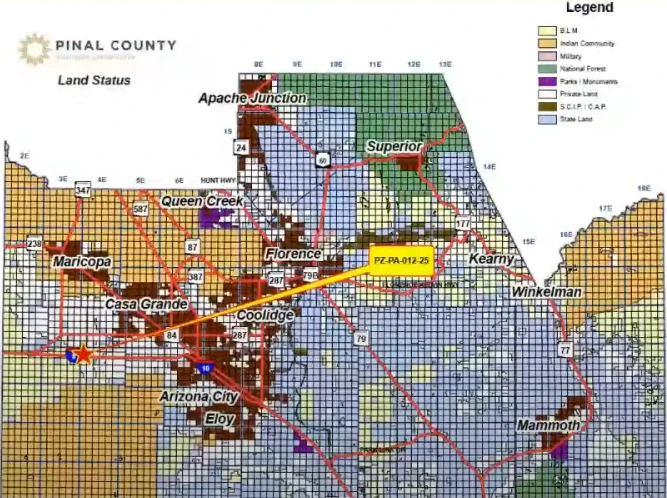
Location and Surroundings
Senior Planner Patrick Zaia-Roberts described the site conditions during his presentation. “Most of the property is vacant and criss-crossed by a number of wash systems,” he told commissioners. The nearest residential properties are located 1,000 to 1,800 feet from the proposed solar arrays to the northeast of the site. Staff noted that this proximity would require visual screening to minimize the impact on adjacent properties.
The property borders Bureau of Land Management land to the west, with private agricultural and rural residential properties surrounding the area. The area may be impacted by local water flows that will require additional analysis.
Project Details and Site Features
The facility would include photovoltaic arrays, a 200-megawatt battery storage system occupying approximately 15-20 acres, an onsite project substation, and an operations and maintenance building. The project would connect directly to the existing 230-kilovolt Santa Rosa to Tat Momoli transmission line that runs through the center of the property.
Solar panels would be mounted on single-axis tracking systems that follow the sun throughout the day, installed between 5 to 8 feet off the ground at their lowest point and reaching a maximum height of 12 feet when fully tilted. The project would create approximately 150 temporary construction jobs and 10 to 20 permanent operations and maintenance positions.
Part of Broader Energy and Data Center Development Wave
The Silver Reef project was one of multiple major energy and data center proposals discussed during the July 17 meeting. The commission reviewed the Silver King Solar project, the largest solar development in county history, which seeks to re-designate 8,891 acres for a 1,100-megawatt photovoltaic solar power plant with up to 1,100 MW of battery storage west of the intersection of State Highways 60 and 79.
Commissioners also discussed the Griffin Energy Project, covering 2,685 acres for a utility-scale solar facility with battery storage and a gas-fired power plant between Santa Rosa Wash and Green Wash along Interstate 8. The Griffin Energy, Bella Energy and Silver Reef Energy Projects are all in the vicinity South of Stanfield.
Additionally, the La Osa Project proposes transforming 3,374 acres into an energy and data center complex with gas-fired power generation and battery storage along the Greene Canal.
The agenda included two data center proposals: Project Midway, requesting redesignation of 215 acres near Casa Grande for data center development, and the W Holdings Energy Generation and Technology Campus, seeking to transform 2,495 acres south of Maricopa into an employment center that could potentially focus entirely on renewable energy and data centers.
Combined, the proposals represent over 18,000 acres of energy and data infrastructure development, highlighting Pinal County’s emergence as a major hub for power generation and data processing facilities.
Environmental and Infrastructure Concerns
Staff identified several areas requiring further review. Open Space and Trails raised concerns about riparian habitat impacts, potential noxious weed impacts that would need to be mitigated, and desert soil crust retention. The project would need analysis through the Arizona Game and Fish Department’s Environmental Review Tool (ERT).
Flood control issues emerged due to waterways crossing the property, which will require a comprehensive drainage report. Staff also noted that residential proximity would require consideration of additional screening for visual impacts from the solar installation.
Commission Discussion on Layout and Land Use
Commissioner Daren Schnepf questioned the project’s disjointed layout, noting the zigzag pattern of the proposed development across multiple parcels. Zaia-Roberts explained that the applicant submitted contiguous parcels for development, even though the projects themselves appear disconnected. “In a desire to not submit three separate applications for the same area, they’ve tried to connect those as best as possible,” he said.
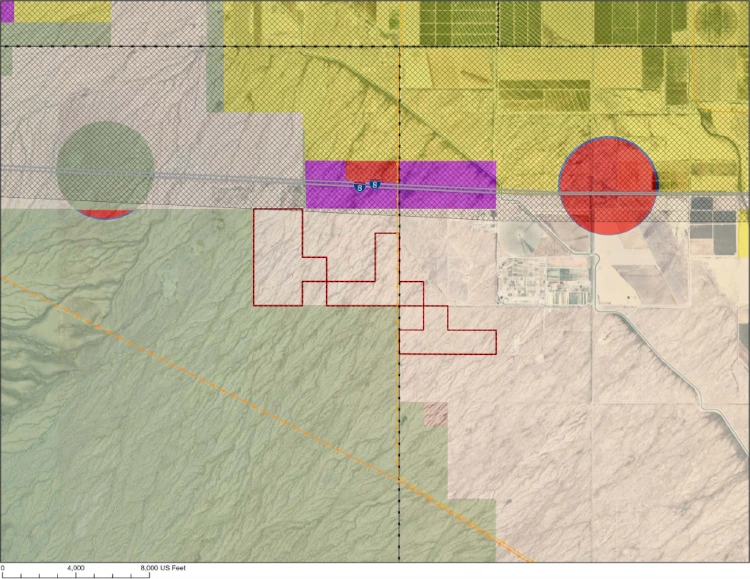
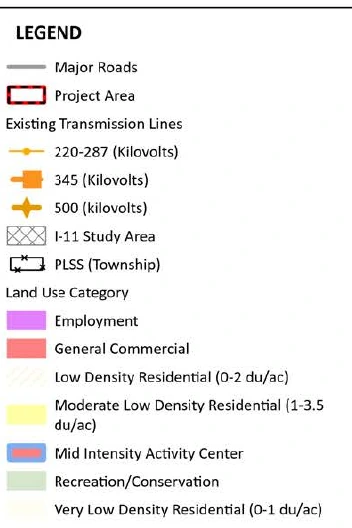
Commissioner Gary Pranzo raised broader concerns about land use efficiency for energy projects, particularly regarding nuclear power alternatives. “A conventional power plant, in terms of land use, is probably at a magnitude of a thousand times better than what we’re using land up for. So I need those kind of assurances before I can go forward with these kind of things,” Pranzo said. He expressed concerns that the county might be “shooting ourselves in the foot” by using up large amounts of acreage for solar projects, potentially preventing the development of more land-efficient conventional or nuclear power plants.
Residential Impact Concerns
Commissioner Karen Mooney echoed concerns about the project’s zigzag configuration, particularly noting its position relative to nearby homes. Vice-Chairman Robert Klob drew comparisons to a previous case outside Coolidge where solar development surrounded residential properties on three sides.
“I would implore the owners here to try and acquire those so we don’t have someone that is a private ownership that is surrounded by solar that is going to make their life miserable,” Klob said. He emphasized that while development on one or two sides might be acceptable, surrounding properties on three sides creates significant problems for existing residents.
Development Timeline and Process
The applicant anticipates construction beginning in the first quarter of 2028, following approval of the comprehensive plan amendment and subsequent county permits. The construction phase would be complete by the second quarter of 2030, with facility testing and commissioning in the third quarter and commercial operation beginning October 1, 2030.
The commission’s work session represents an early step in the comprehensive plan amendment process. Staff indicated that Pranzo’s concerns about land use efficiency would be conveyed to the applicant, who must address environmental reviews, drainage analysis, and community outreach requirements before formal approval consideration. No action was taken during the work session, which was held for informational purposes only.
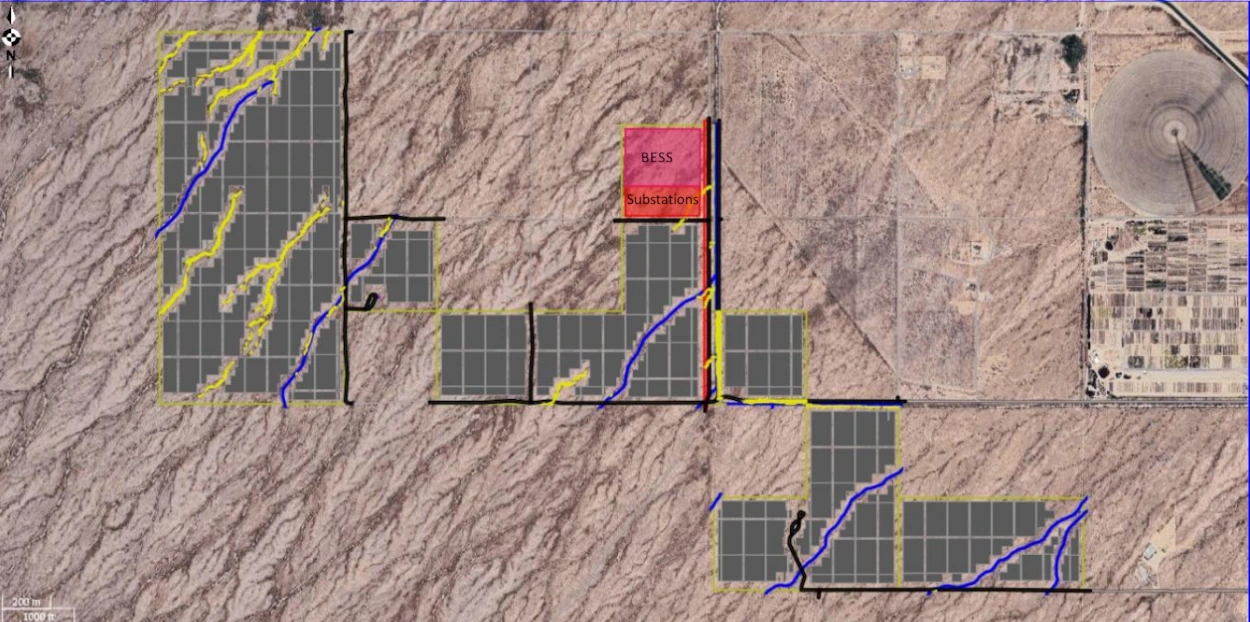
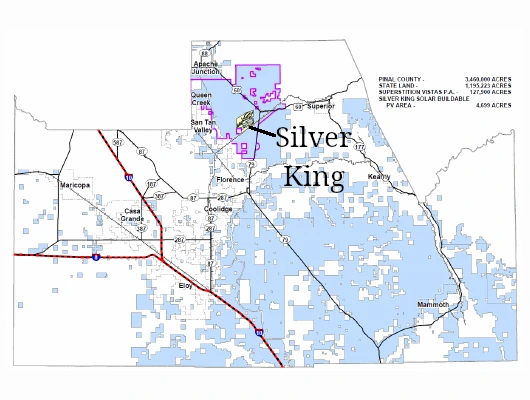
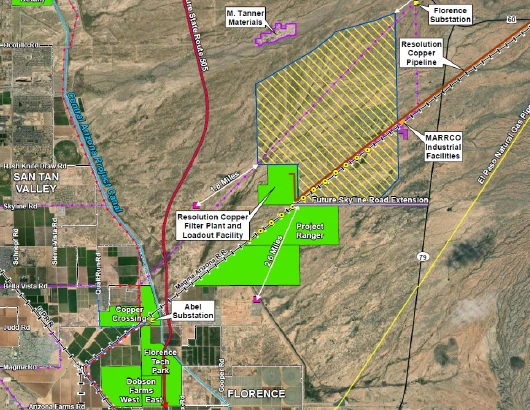
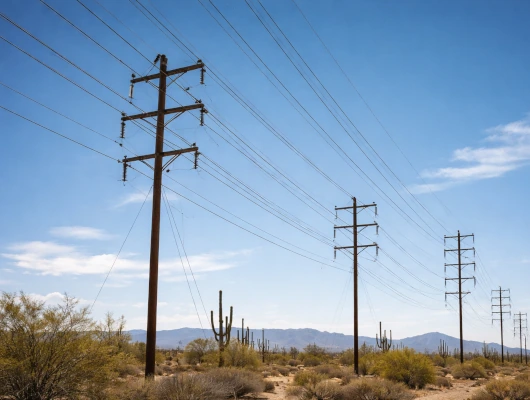

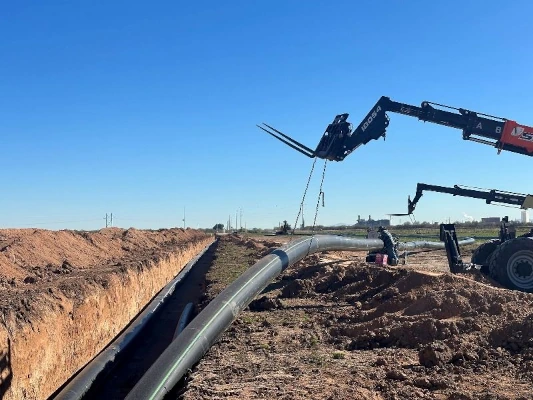

This is the craziest thing there is. Solar is going out. There are better use of this land
A waste of time and moneyd